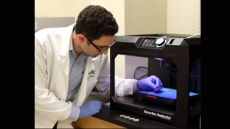Do you believe that a person travelling in a high-speed rocket would age more slowly than people back on Earth?
Giving a thrust to the "time-dilation" effect, physicists have verified a key prediction of Albert Einstein's special theory of relativity with unprecedented accuracy. Clocks made of lithium ions helped the researchers to do so.
The experiments confirmed that time moves slower for a moving clock than for a stationary one.
"It is nearly five times better than our old result and 50 to 100 times better than any other method used by other people to measure relativistic time dilation," claimed study co-author Gerald Gwinner, a physicist at the University of Manitoba in Winnipeg, Canada.
To test the effect, physicists needed to compare two clocks - one that is stationary and one that moves.
The researchers used the Experimental Storage Ring, where high-speed particles are stored and studied at the GSI Helmholtz Centre for heavy-ion research in Darmstadt, Germany.
They made the moving clock by accelerating lithium ions to one-third the speed of light.
Then they measured a set of transitions within the lithium as electrons hopped between various energy levels.
The frequency of the transitions served as the ticking of the clock.
Transitions within lithium ions that were not moving served as the stationary clock.
It is the culmination of 15 years of work by an international group of collaborators including Nobel laureate Theodor Hansch, director of the Max Planck optics institute, the study noted.
Understanding time dilation has practical implications.
The Global Positioning System (GPS) satellites are essentially clocks in orbit, and GPS software has to account for tiny time shifts when analysing navigational data.
The European Space Agency plans to test time dilation in at the International Space Station in 2016.
The paper was published in the journal Physical Review Letters.





